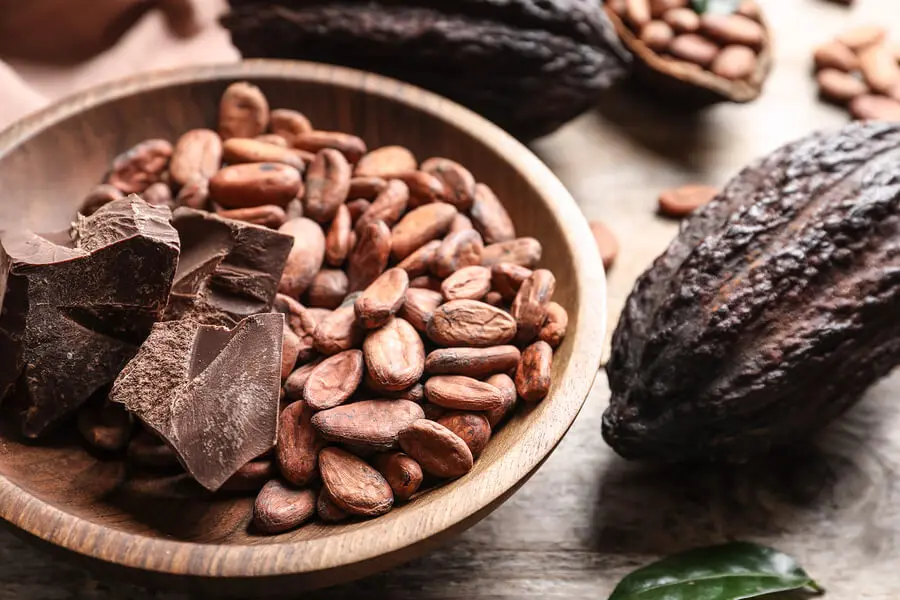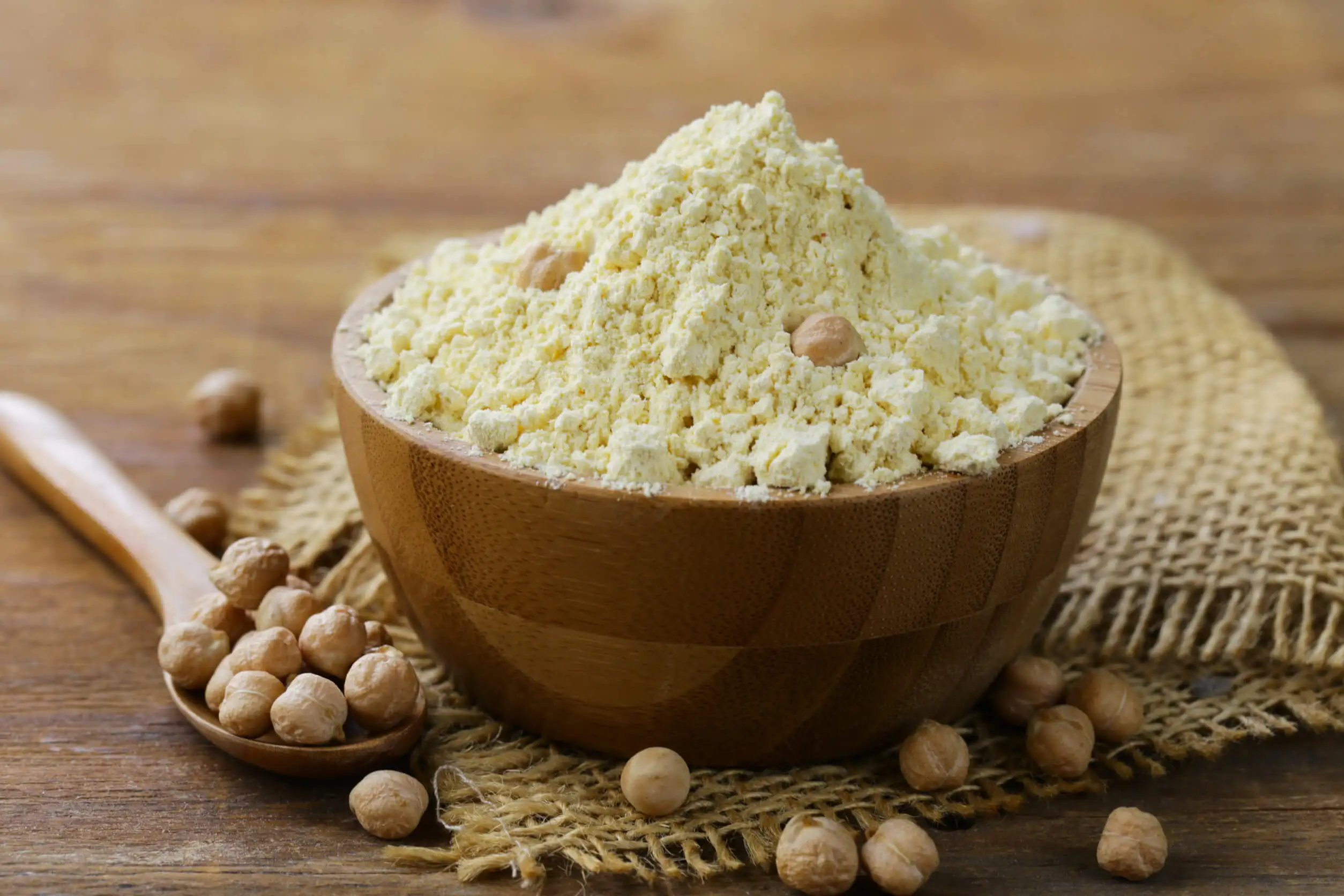2 Ways to Make Chocolate Chip Cookies with Chickpea Flour


Written and verified by the nutritionist Saúl Sánchez Arias
Chocolate chip cookies are one of the most popular snacks around. There are many ways to prepare them, although not all of them are healthy. In this case, we’re going to show you some options that use chickpea flour as one of the main ingredients.
In this way, the final result will be more nutritious. However, you need to remember that we’re talking about an ingredient that you should only use occasionally in your diet.
Despite the anti-sugar movement in recent years, it should be noted that it’s possible to consume this product from time to time without major consequences. The ideal thing is to practice physical exercise daily and prioritize the intake of complex carbohydrates.
1. Chocolate chip cookies with chickpea flour
Let’s start with one of the most basic recipes for chocolate chip cookies with chickpea flour. In this case, we’re talking about a recipe with low sugar content and a high presence of cocoa. This element of vegetable origin has proven to be beneficial to health. Among other things, it’s able to reduce blood pressure.

Ingredients
- 1 egg
- A pinch of salt
- 1/4 cup honey
- 1/3 cup oil
- 1/4 cup chickpea flour
- 1/2 tablespoon baking powder
- 60 grams (2.2 oz) of dark chocolate with 70% cocoa
- 1/3 cup cocoa powder with no added sugars
With these ingredients, you’ll be able to make about 12 medium-sized cookies. If you want to increase the number, increase the quantities, while keeping to the established proportions.
It’s also possible to vary the cocoa concentration of the chocolate used, but this will depend on individual tastes. What’s clear is that the product will be healthier the higher the cocoa content.
Another great recipe here: How to Prepare Healthy Oatmeal and Raisin Cookies
Instructions
Start by preheating the oven to 180 degrees Celsius (356 Fahrenheit). Put all the dry ingredients in a bowl and mix well. Then add the egg, oil, and honey. Mix until you get a smooth doughy texture.
It’s possible that, at first, the consistency will be excessively liquid. However, as the kneading progresses, the chickpea flour will absorb the water, thus obtaining an optimum texture.
From here on, all that remains is to grease a baking tray with extra virgin olive oil and form small cookies with your hands, placing them on the tray. It’s always advisable to give them a rounded shape. Bake them for 12 to 15 minutes and remove them, leaving them to cool before eating them.
2. Chocolate cookies with chickpea flour for people with food intolerances
The number of people with food intolerances is increasing all the time. This forces us to adapt the recipes, avoiding the inclusion of ingredients that can cause a bad reaction or discomfort. We’re going to describe a recipe for chocolate cookies with chickpea flour that will be easy on your digestive system.
Thanks to its content in chickpea flour, they’ll provide significant fiber content. This compound helps prevent constipation, as stated in a study published in the journal Nature Reviews.
You may also be interested in: Vanilla Cookies: Step-by-Step Recipes
Ingredients
- 1/4 teaspoon of salt
- 1 or 2 tablespoons of water
- 3 tablespoons of maple syrup
- 3 tablespoons of brown sugar
- 115 grams (4.5 oz) of chickpea flour
- 1/2 teaspoon of baking powder
- 1/2 teaspoon of vanilla extract
- 2 tablespoons of chocolate chips
- 3 tablespoons of melted coconut oil

Step by step
You have to start by preheating the oven to 175 degrees Celsius (347 Fahrenheit). Put the dry ingredients in a bowl and mix them together. We’re talking here about the flour, yeast, salt, and sugar.
It’s important for them to be well mixed. Then add the oil, together with the vanilla extract and the syrup. Stir well with the help of a wooden spatula.
Now it’s time to add the chocolate chips. After a while kneading, you should get a homogeneous dough.
However, if it’s too dry, you can correct it with a teaspoon or two of water. Once the texture is optimal, form small balls and place them on a baking tray with baking paper. Bake for about 12 minutes and wait for them to cool.
Please note that this recipe has more simple sugars than the previous one. This ingredient can be replaced by liquid sweetener, although there’s some controversy with this type of product. There’s evidence that they may have a negative impact on the gut microbiota.
Make chocolate chip cookies with chickpea flour
It isn’t difficult to make chocolate chip cookies with chickpea flour. You don’t need many ingredients and you’ll be able to get a final result with a moderate content of simple sugars; this is considered very beneficial to prevent problems associated with metabolic health.
However, you shouldn’t think that you can just eat and eat these chocolate cookies. Even though it uses healthy ingredients, we’re still talking about a recipe that’s intended for occasional consumption only.
All cited sources were thoroughly reviewed by our team to ensure their quality, reliability, currency, and validity. The bibliography of this article was considered reliable and of academic or scientific accuracy.
- Ried, K., Fakler, P., & Stocks, N. P. (2017). Effect of cocoa on blood pressure. The Cochrane database of systematic reviews, 4(4), CD008893. https://doi.org/10.1002/14651858.CD008893.pub3
- Gill, S. K., Rossi, M., Bajka, B., & Whelan, K. (2021). Dietary fibre in gastrointestinal health and disease. Nature reviews. Gastroenterology & hepatology, 18(2), 101–116. https://doi.org/10.1038/s41575-020-00375-4
- Emamat, H., Ghalandari, H., Tangestani, H., Abdollahi, A., & Hekmatdoost, A. (2020). Artificial sweeteners are related to non-alcoholic fatty liver disease: Microbiota dysbiosis as a novel potential mechanism. EXCLI journal, 19, 620–626. https://doi.org/10.17179/excli2020-1226
This text is provided for informational purposes only and does not replace consultation with a professional. If in doubt, consult your specialist.








